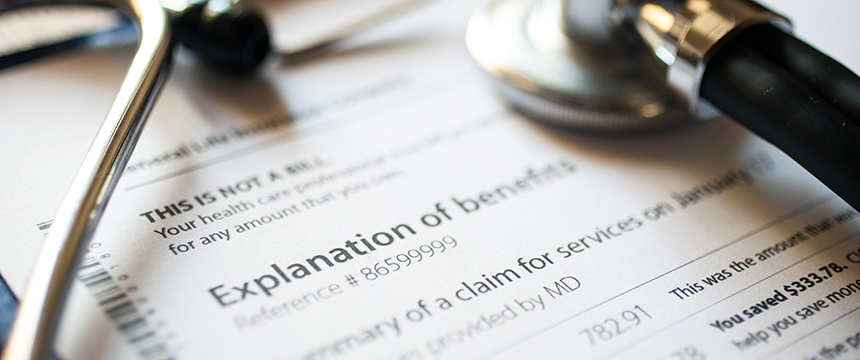
The IRS issued two notices on May 12, 2020, Notice 2020-29 and Notice 2020-33. These Notices provide a number of options that employers could choose to offer their employees with respect to their 2020 cafeteria plan benefits as well as some additional guidance as described below.
Election Changes under Section 125 Cafeteria Plans
Under IRS Notice 2020-29, an employer has the option of amending its cafeteria plan to allow employees to make prospective changes to their health plan, health flexible spending account (health FSA) and dependent care flexible spending account (dependent care FSA) elections during calendar year 2020. These changes, which IRS rules would typically prohibit absent a change in status event, allow employees to:
- Enroll in health coverage, if the employee previously declined coverage;
- Revoke an existing election for health coverage and make a new election to enroll in different coverage (e.g., single coverage to family coverage, high deductible health plan (HDHP) option to PPO option);
- Revoke an existing election for employer health coverage entirely, provided that the employee attests s/he will enroll in coverage elsewhere (using model language that the IRS has provided);
- Change a health FSA election (including limited purpose health FSAs) by starting, revoking, increasing or decreasing an election; and
- Change a dependent care FSA election by starting, revoking, increasing or decreasing an election.
An employer that decides to allow these changes is not required to provide for unlimited changes. For example, employers could limit mid-year election FSA changes to no less than amounts already reimbursed, or could limit health coverage elections to increased coverage only.
Additionally, the relief under Notice 2020-29 applies retroactively to January 1, 2020, to cover situations where an employer previously allowed election changes that were not permitted at the time but are now permitted under this Notice.
Extended Periods for Health FSAs and Dependent Care FSAs
Under Notice 2020-29, an employer also has the option of amending its cafeteria plan to allow for an extended period during which participants can use unused amounts remaining in a health FSA or dependent care FSA, as follows:
- An employer may amend its cafeteria plan to allow employees to use remaining amounts in an FSA at the end of (i) a grace period ending in 2020 or (ii) a plan year ending in 2020 to pay or reimburse expenses through December 31, 2020.
- This applies to cafeteria plans with a grace period or a carryover.
- Example: If a cafeteria plan provides for a grace period ending on March 15, 2020 for a health FSA, an employee with $600 dollars remaining in her health FSA on March 15, 2020 can use that $600, in addition to any amounts she contributes to the health FSA in 2020, through December 31, 2020.
- Note that if an employer allows a carryover, rather than a grace period, for its health FSA, this extended period would only have practical effect if the plan year is not a calendar year. For example, if the plan year runs from July to June and allows for a $500 carryover, an employee with $2,000 remaining in his health FSA on June 30, 2020 could use the full $2,000 (in addition to whatever amount he elected to contribute for the July 1, 2020 – June 30, 2021 plan year) for claims incurred prior to January 1, 2021. On January 1, 2021, the plan’s standard carryover provision would apply to any amounts from the July 1, 2019 – June 30, 2020 plan year that were not used during this extended period for incurring claims, and the carryover amount could be used for the remaining portion of the July 1, 2020 – June 30, 2021 plan year.
- Use of this special extension for health FSAs will make an individual ineligible to participate in an health savings account (HSA) unless the health FSA is a limited purpose FSA (i.e., only post-deductible or dental and vision expenses). Employers with HDHPs should think through this carefully before deciding to adopt this optional change.
Increase in Health FSA Carryovers
Under Notice 2020-33, an employer also has the option of amending its cafeteria plan to allow for increased health FSA carryovers. This change is a permanent change that is not limited to the COVID-19 outbreak period or calendar year 2020. Employers have the option of amending a plan that already has a carryover to increase the maximum $500 carryover amount to an amount equal to 20% of the maximum health FSA salary reduction for that plan year or to add a new carryover up to that maximum amount. For example, the 2020 salary reduction limit is $2,750, meaning a participant could carry over $550 into the 2021 plan year.
Plan Amendments
All of the changes described above are optional – an employer can choose to implement some, all, or none of them. The deadlines for plan amendments are as follows:
- For mid-year election changes and extended periods of reimbursement for FSAs, the employer must adopt an amendment for the 2020 plan year on or before December 31, 2021.
- The amendment can be retroactive to January 1, 2020, provided the plan operates in accordance with the Notices and the employer informs eligible employees of the changes.
- For an increase in the amount of health FSA carryover, an employer must adopt an amendment on or before the last day of the plan year from which amounts may be carried over.
- The amendment can be retroactive to the first day of the plan year if the employer informs eligible employees of the change.
- The above “last day of the plan year” deadline is extended to December 31, 2021 solely for the 2020 plan year.
Clarification on HDHPs and Telehealth
The CARES Act and earlier IRS guidance allowed HDHPs to offer medical care and items purchased related to testing and treatment of COVID-19 and telehealth or remote care services to be covered at no cost prior to the satisfaction of the applicable minimum deductible without affecting the status of a HDHP or the ability of enrolled employees to participate in an HSA. See our prior article on first dollar coverage of COVID-19-related expenses, available here.
Notice 2020-29 provides clarification that care and items related to testing and treatment include diagnostic testing for influenza A & B, other coronaviruses, and respiratory syncytial virus (RSV), and any items or services required to be covered with zero cost sharing under section 6001 of the Families First Coronavirus Response Act and CARES Act. Additionally, Notice 2020-29 clarifies that the exception for no cost telehealth and other remote care services applies to services provided on or after January 1, 2020 with respect to plan years beginning on or before December 31, 2021.
ICHRAs and Initial Premium Payment
Health reimbursement arrangements (HRAs) are subject to a restriction limiting them to reimbursing only medical care expenses incurred during a plan year. This raises administrative issues for an individual coverage HRA (ICHRA), as individuals may need to pay, prior to the first day of a plan year, all or part of the premiums for individual health insurance or Medicare for that plan year. Notice 2020-33 allows an ICHRA to treat an expense for a premium for health insurance coverage as incurred on either (1) the first day of each month of coverage on a pro rata basis, (2) the first day of the period of coverage, or (3) the date the premium is paid. This means an initial premium paid before the start of the plan year can be considered a qualified medical expense for that plan year. See our prior articles located here and here for more information on ICHRAs.
Foley has created a multi-disciplinary and multi-jurisdictional team to respond to COVID-19, which has prepared a wealth of topical client resources and is prepared to help our clients meet the legal and business challenges that the coronavirus outbreak is creating for stakeholders across a range of industries. Click here for Foley’s Coronavirus Resource Center to stay apprised of relevant developments, insights and resources to support your business during this challenging time. To receive this content directly in your inbox, click here and submit the form. For more information, please contact your Foley relationship partner.






